Sixties
City presents
a wide-ranging series of
articles on all aspects of the Sixties, penned by the creator of the iconic
60s music paper Mersey
Beat
|
Sixties
City presents
a wide-ranging series of
articles on all aspects of the Sixties, penned by the creator of the iconic
60s music paper Mersey
Beat
|
|||||
|
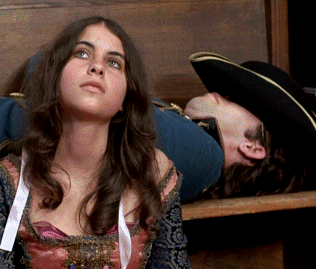 |
The
1969 United Artists film was based on Arlo Guthrie's number 'Alice's Restaurant
Massacre', from his 1967 debut album 'Alice's Restaurant' (Reprise RLP 6267).
The number was 18 minutes and 20 seconds in length and took up the entire
first side of his album. It initially attracted attention when he performed
it at the Newport Folk Festival as a lengthy autobiographical number punctuated
with an equally lengthy monologue. The anti-Vietnam war number was based
on the story of Alice M. Brock who, in 1964, together with her husband Ray,
bought a deconsecrated church with $2,000 her mother had given to Alice.
The song is a talking blues number about Guthrie's experiences starting
on Thanksgiving Day 1965. Arlo and friends join Alice and Ray for a Thanksgiving dinner at the church and as a way of thanks, decide to take the garbage that has amassed for several months around the building to a nearby dump. They arrive and find that the town dump has been closed, but when they spot a pile of refuse at the bottom of a short cliff, they decide to deposit the refuse there. The next day they receive a call from the police chief and they agree to pick up the refuse that they've dumped and meet him at the police station. But as soon as they get to the station they are all arrested and then taken to the dump where, as mentioned in the song: "there was five police officers and three police cars, being the biggest crime in fifty years, and everybody wanted to get in the newspaper story about it. And they was using all kinds of cop equipment that they had hanging around the police officer's station. They was taking plastic tyre tracks, footprints, dog smelling prints, and they took 27 eight-by-ten colour glossy photographs with circles and arrows and a paragraph on the back of each one explaining that each one was to be used as evidence against us". When the trial takes place the police chief is anxious to show the judge the 27 photographs, but he is taken aback to discover that the judge is blind and Chief 'Obie' is frustrated when the accused only receive a $50 fine and are set free as soon as they dispose of the refuse. When Arlo is called up for the draft in New York and attends the induction centre he finds that, because he has a criminal record for littering, he is sent to a section where criminals have to wait and is then rejected as unfit for the army. He comments in his song, "You want to know if I'm moral enough to join the army, burn women, kids, houses and villages after bein' a litterbug". Other incidents in the film include: Arlo leaves college after diving through a plate glass window; Alice and Ray seem to have an open relationship; Arlo visits his dying father, the famed folk singer Woody Guthrie, in hospital; the police chief William 'Obie' Obanhein appears as himself; one of Arlo's friends, Shelly, overdoses on drugs and dies. 'Alice's Restaurant' was released on 20th August 1969. It was directed by Arthur Penn and the screenplay by Venable Herndon was based on the song. Arlo Guthrie starred as himself, as did folk artist Pete Seeger. Pat Quinn featured as Alice and James Broderick as her husband, Ray. |
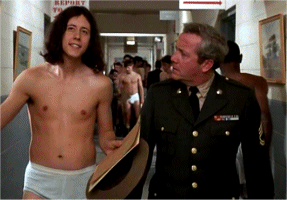 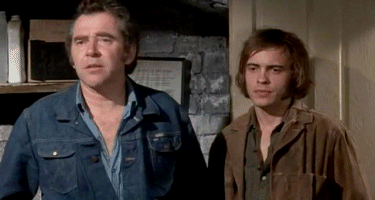 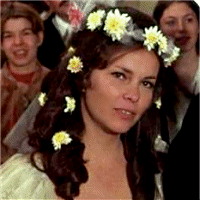 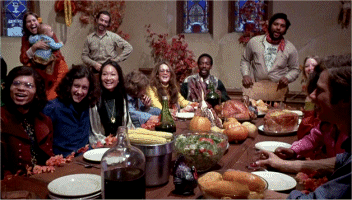 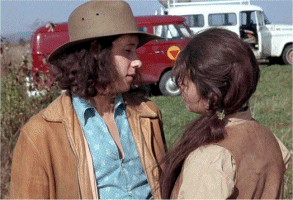 |
|
Article
Text
UK
web hosting by
|